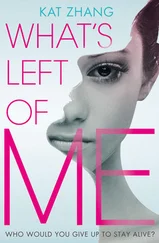"Yeah, I bet his telephone rings in the middle of the night," I said.
"I bet every night it does."
As my uncle stared at the newspaper headlines on the shed wall, I could almost see his sympathy for H. B. Jefferson draining like color from his cheeks. "But I don't need H. B. Jefferson's secret information to know that things are getting worse by the hour," he said. "Wars always get worse by the hour. That's their nature. Then they end. And the average person's stunned shitless when a war ends. Why? Because up to the last minute things are still getting worse."
Just before supper there was a knock on the shed door. What happened next, to my mind, went hand in hand with my uncle's brief lecture on war. He opened the door, stepped back and said, "Lenore, what brings you so far from the house?"
Lenore held up a piece of paper. "I used my stenography and took down a bulletin from the radio a short while ago, Donald," she said. "An auxiliary Navy vessel called Lady Quintanna was sunk. Yesterday, November 19. Thirty-seven people lost."
My uncle sat right down on the floor. "Isn't there one living, breathing soul — where's Adolf Hitler live? It's in Berlin, isn't it?" he said. "Isn't there one person in all of goddamn Berlin, Germany, with enough goddamn sense and gumption to shoot Hitler in the head?"
Lenore looked pensive. "My father," she said, "when I was about five, he put a bullet into our dog because the veterinarian said our dog had a fever in the brain. Not curable."
"Point well taken," my uncle said. "All right, then, Wyatt, let's close up shop for the day. We're in for supper. Probably you're eating with us, Lenore."
"I've been invited, yes," Lenore said.
She shut the door. My uncle and I tidied things up a bit and went into the house. When we washed our hands in the sink and sat at the kitchen table, my aunt said, "I've put the radio in the bedroom, Donald. I don't want to listen to it while we eat."
"I'll tune in after supper," my uncle said. "Immediately after."
Aunt Constance served us chicken and potatoes. The conversation hopped subject to subject, and that was good, because it kept things lively, though the lack of continuity in conversations often put my aunt on edge, and she'd say, "Can we please keep the needle in the groove, please? " But this time she left well enough alone. When Tilda had cleared the dishes, Uncle Donald took from his shirt pocket the radio bulletin Lenore had copied out in shorthand, and said, "Lenore, would you kindly translate this into English for me?"
"Mr. Hillyer," Lenore said, "it's common knowledge I'm training to be a professional stenographer."
"Of course," my uncle said. "Well, once you've completed the task, make out a receipt and I'll be happy to sign it and pay you on the spot."
"May I use your parlor?" Lenore said.
"Yes, Lenore, use the parlor," Tilda said.
Lenore took about half an hour. She then wrote out a receipt on a page torn from her notebook. My uncle read it. "This amount's being professional, all right," he said. "It's steep, but so be it." He went ahead and signed it. He then handed Lenore three dollars and the receipt.
"Should we have tea in the parlor or at the table?" my aunt asked.
"At the table," Tilda said.
But first my uncle sat in the parlor and read what Lenore had translated. He then came to the kitchen table and started reading all five pages, about the sinking of the Lady Somers, out loud. My aunt and Lenore were sitting at the table. I was standing at the counter. Tilda was in the doorway to the bedrooms. Tea hadn't been served yet. When my uncle finished reading, you could hear a pin drop.
"Now, Lenore," he finally said, "are you sure you took down what the radio said word for word?"
Lenore looked confident. "I'm satisfied that I did," she said.
My uncle said, "Then this bulletin isn't your average keepsake."
The First Time I Saw the German Student Hans Mohring
BY THE SPRING OF 1942, my uncle had delegated to me five new customers, all in Quebec province. I wrote them letters and three of them agreed to let me build their toboggans, whereas two said they'd prefer Donald's work, and who could blame them? They'd said it nicely. Of course, my uncle and I continued to work together as well.
Tilda was often on my mind. Or I might better say, she rarely was not. Yet I felt I still knew very little about her. So every new discovery, every fact of her upbringing and nature, was a revelation. For instance, on August 25, 1942, Tilda kept an appointment with a mesmerist, Dr. Everett Sewell, of 27 Ingus Street in Halifax. Donald and Constance hoped that Dr. Sewell, using the techniques of hypnotism, might get Tilda to "talk in her waking sleep," as Donald put it, and reveal why she hardly thought of much else but mourning the deaths of people she'd never met, some of whose names she found in the obituary pages of Halifax newspapers. Up until this time, I had only a general understanding of this. I knew that she could recite certain obituaries like Scripture, a practice begun when she was fifteen. By age seventeen she'd invented her own obituaries, which she'd write down. Fictions. Eventually she let me read some. On page after page I recognized Tilda's writerly talents. I don't know how the wider world would've judged this, but to my mind Tilda wrote like a dream. She didn't scrimp on imagination, I thought. Anyone would be honored to have her write their obituary. It's an art if a true artist is at work.
Yet when Tilda announced her intention of being a professional mourner (in Nova Scotia, only two other people were legally registered as such), Donald and Constance were thrown into a tizzy. I was present, but Tilda wasn't, when Reverend Witt, of Bayside Methodist Church of Middle Economy, took tea in our kitchen and suggested that Tilda see a mesmerist. Witt was acquainted with Dr. Sewell and provided Tilda a letter of introduction. "It's not that her wanting to be a mourner is on the whole undignified," Witt said. "Families estranged from the deceased person, say. Or say a person's ostracized from society for some moral trespass. Or say the deceased simply outlived anyone who knew him. There's any number of possibilities for why a person has nobody to mourn for him. Indeed, a mourner provides a useful service, perhaps even a spiritual one."
"So what's the problem, then?" my uncle said.
"It's just that the other day," Reverend Witt said, "when I'd officiated graveside at Great Village Cemetery over Mary Albright's internment — and I know you didn't know the Albrights — I happened to look over and see your Tilda throwing herself on the ground in front of a gravestone near the picket fence. Tilda was wailing, too. The sound carried."
"Are you saying my daughter shouldn't have a trade?" my uncle asked.
"No, that'd be independent of her, and that's pride and that's good," Reverend Witt said. "From what you've told me, she's not for university. True, there's a tradition — professional mourners have been in Nova Scotia a long time. But since you asked for advice, I'm merely saying that it's a somewhat morbid choice for such a beautiful young woman, so alive, so full of the appetite for life, as anyone can see. What's more, I understand she's sewn two black dresses in advance of starting this employment."
"She's a fine seamstress," my aunt said. "I take responsibility for that."
My uncle picked up Reverend Witt's teacup before he'd finished his tea. Looking out the window over the sink, my uncle said, "If Tilda chooses to publicly demonstrate she's got that much additional sadness to give away — plus there's the wages, however modest. I have to trust what you saw in Great Village was Tilda practicing her craft, so to speak. So to speak, and right while you were practicing yours, by the way, on Mary Albright's behalf."
Читать дальше












